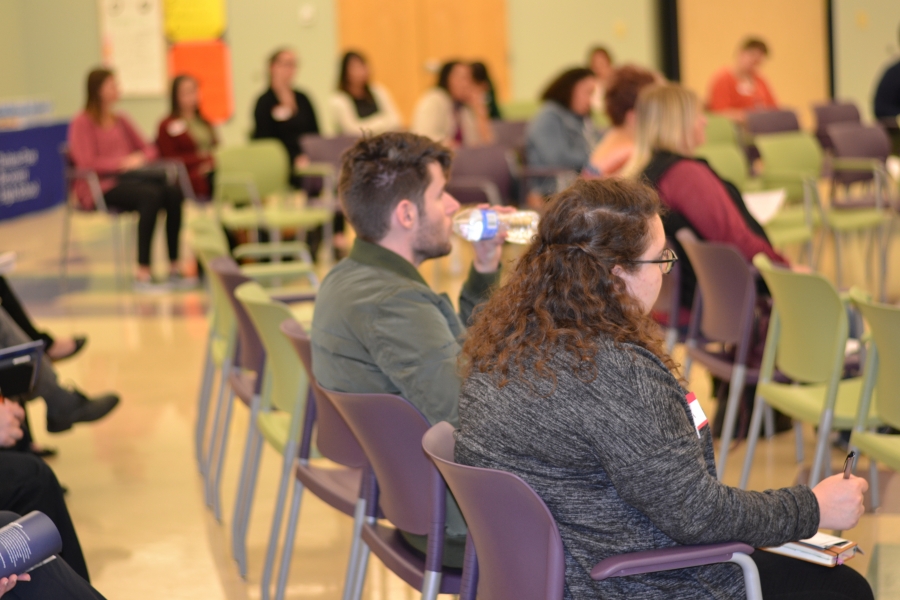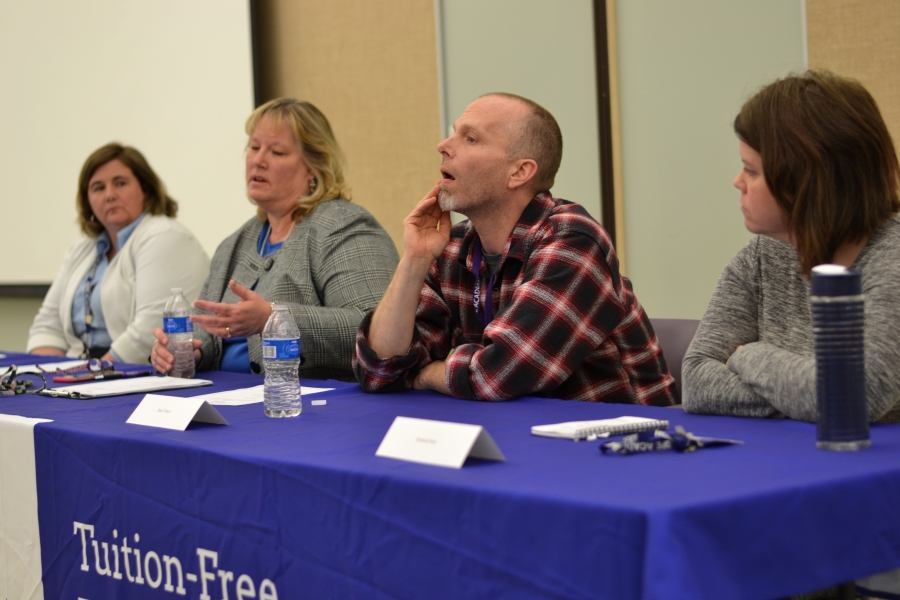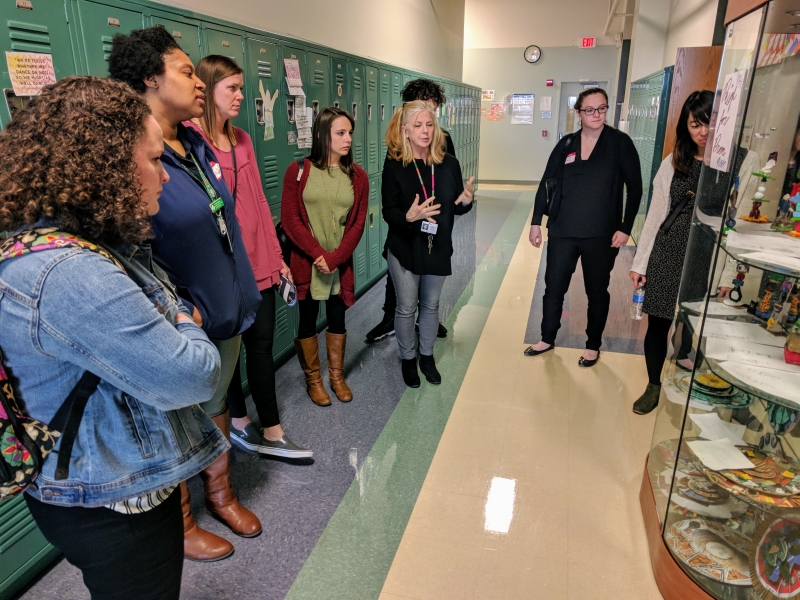Hope Academy recently hosted a free open house for educators, which was attended by representatives from several central Indiana school corporations as well as community corrections offices.
The purpose of the event was to show how the recovery high school can be a resource for schools and others working with substance-impacted youth.

Rachelle Gardner, Hope Academy’s chief operating officer, emphasized that while it’s a charter school, Hope Academy is tuition-free.
“We are a school for the entire state,” she said, adding it’s currently the only recovery high school in the Midwest and one of only 40 nationwide. “It doesn’t cost any more to come here than it does other public schools.”
Gardner was instrumental in helping to establish Hope Academy 13 years ago. While working with adolescents at Fairbanks – the nonprofit drug and alcohol treatment center that houses Hope Academy and provides some support – she kept seeing many of her patients relapse after returning to their former environments, namely their schools.
While most students do fine with standard prevention efforts toward substance abuse, “There’s a smaller population of kids who really struggle with being able to get out of that environment long enough to get their heads back on straight,” Gardner said. “They’re the ones who really need something like a recovery high school.”
And while Hope Academy has a recovery platform, it’s still like a regular high school. Students still take standard subjects to earn a Core 40 diploma. Classroom sizes are intentionally kept small.
“That allows teachers to really get to know students,” said Principal Linda Gagyi. “Our teachers are trained so that they understand substance-impacted students so they can use the appropriate supports and interventions. They also do a phenomenal job of helping to fill in the academic achievement gaps for students who’ve missed a lot of school.”

The recovery piece is an important focus in Hope Academy’s curriculum. Students are drug-screened twice monthly and required to attend support group meetings outside of school hours at least twice weekly. Community circles – during which students talk about their recovery with peers and staff – frame each school week. Hope Academy also offers activities like field trips and recovery workshops during school breaks.
The main expectation is that students abstain from drugs and alcohol. While relapse is common, the response is not to expel.
“We’re big on having community conversations about what happened and supporting each other in such cases,” said Brad Trolson, Hope Academy’s recovery coach. “My biggest role is being their cheerleader and advocate. I encourage them to keep going when recovery gets hard, because it does.
“Our students exist along the entire addiction spectrum,” Trolson added. “We try to identify where each is, what changes they’re willing to make and how they’re going to engage in that process.”
Many students who enroll at Hope Academy report starting to use drugs and alcohol as young as ages 10-11. Their parents typically see their children are depressed and anxious, but don’t often recognize they’re also abusing substances.
“So what commonly happens is their substance abuse continues to progress,” Gardner said. “That’s why addiction in children happens so quickly. There’s a stigma that parents don’t want to admit there’s a problem.”
While many adolescents have a substance use disorder that gets them into trouble at school and with the law, there’s a smaller contingent that’s already in active addiction.
“There’s a pocket of kids out there where it’s critical to have recovery schools like Hope Academy available to them – to get them back on a path to a productive life,” Gardner said.
The open house concluded with tours of Hope Academy.

For more information on Hope Academy and to schedule a tour, contact Gardner at 317-572-9382 or rgardner@fairbankscd.org.
